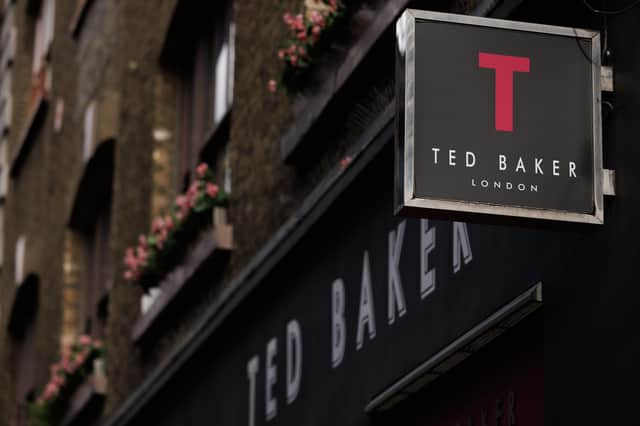Ted Baker news shows more post-pandemic fallout to come for retailers - Kevin Buckle


By the time of the sale it was considered to be stuggling with the £211m price tag being called a cut-price deal, but even so that is a lot of money even for somebody like ABG.
Blame has been attached to how the company was managed prior to the sale but the bottom line is that sales were dropping and one of the major reasons was that in the post-pandemic world office wear sales are now only a third of what they used to be as people continue to work from home.
Advertisement
Hide AdAdvertisement
Hide AdIn theory though the pandemic pushed people who previously had not shopped online into online shopping, that should not have been the end of the world for businesses as it should just have moved their sales about rather than being lost completely. However what the pandemic did was also change the things people bought as well as the way they bought them.
The move towards working from home has had some of the most far reaching consequences not only to clothing retailers like Ted Baker but has also caused the permanent closure of thousands of takeaways in the UK that relied on office workers buying their lunch.
Following on from that restaurants are facing ever increasing overheads but less customers and are failing at an alarming rate too and even pubs are suffering, especially those that offered good food.
It isn’t all bad news for food retailers with visitor numbers to Edinburgh back to pre-pandemic levels. But the focus has to be on those visitors and many small takeaways without seating are very much geared towards an office worker grabbing lunch rather than a family needing to sit down and have a snack.
Advertisement
Hide AdAdvertisement
Hide AdThe retail landscape has always been a constantly moving scenario and the recent Body Shop closures for instance have not been blamed on the pandemic, but clearly things are now very different for both the retail and hospitality sectors and it is not clear what exactly is the way forward.
There is more fall out to come for sure from people’s changing habits with both Boots and Marks and Spencer looking to exit having large buildings on the high street which isn’t good news for Princes Street. Other businesses like John Lewis have tried to justify having such big shops by saying it encourages their online sales but nobody really believes that anymore.
Online sales have not been the saving of retail the way dowloading albums proved to not be the saviour of the music industry, but in the same way downloading morphed into the success of streaming there must be a way high street retailers with a strong online presence can thrive in sufficient numbers that the current sad looking high streets can once again be the place people want to visit.